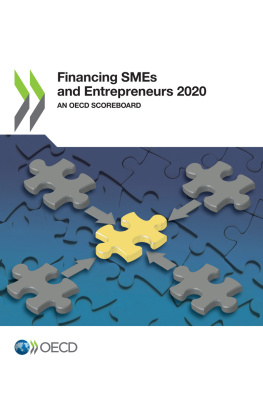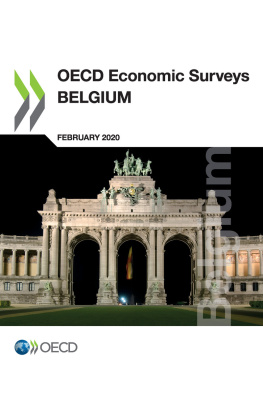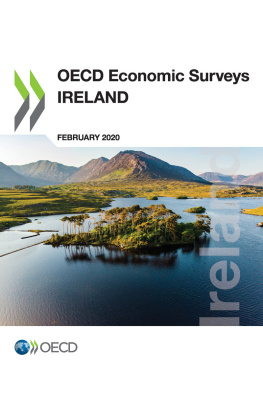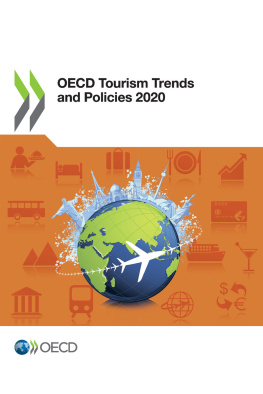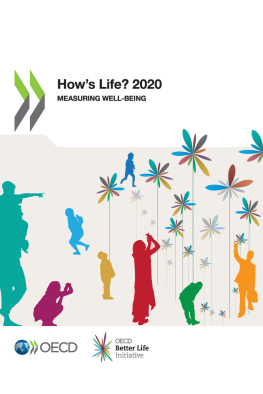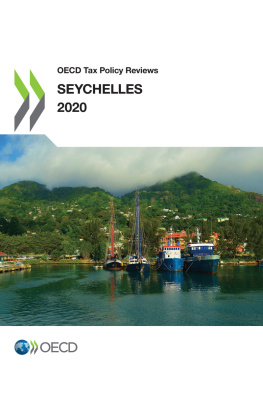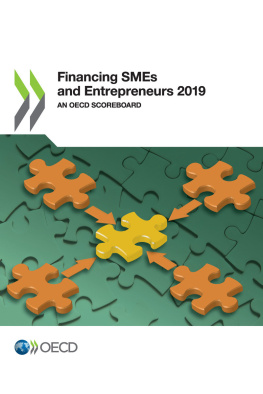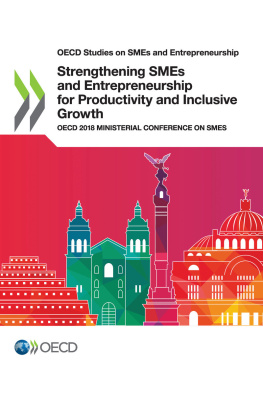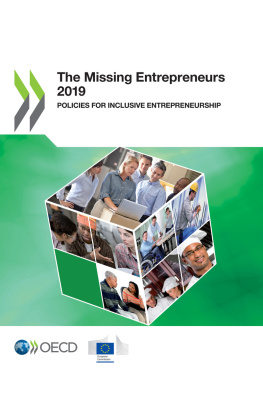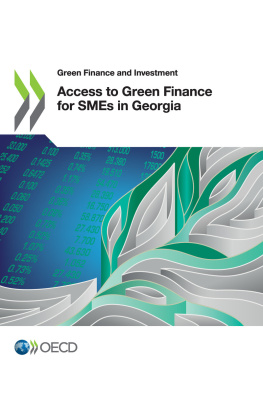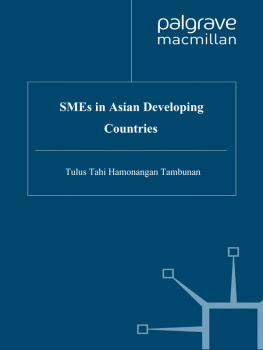OECD - Financing SMEs and Entrepreneurs 2020
Here you can read online OECD - Financing SMEs and Entrepreneurs 2020 full text of the book (entire story) in english for free. Download pdf and epub, get meaning, cover and reviews about this ebook. year: 2020, publisher: OECD Publishing, genre: Politics. Description of the work, (preface) as well as reviews are available. Best literature library LitArk.com created for fans of good reading and offers a wide selection of genres:
Romance novel
Science fiction
Adventure
Detective
Science
History
Home and family
Prose
Art
Politics
Computer
Non-fiction
Religion
Business
Children
Humor
Choose a favorite category and find really read worthwhile books. Enjoy immersion in the world of imagination, feel the emotions of the characters or learn something new for yourself, make an fascinating discovery.
Financing SMEs and Entrepreneurs 2020: summary, description and annotation
We offer to read an annotation, description, summary or preface (depends on what the author of the book "Financing SMEs and Entrepreneurs 2020" wrote himself). If you haven't found the necessary information about the book — write in the comments, we will try to find it.
OECD: author's other books
Who wrote Financing SMEs and Entrepreneurs 2020? Find out the surname, the name of the author of the book and a list of all author's works by series.
Financing SMEs and Entrepreneurs 2020 — read online for free the complete book (whole text) full work
Below is the text of the book, divided by pages. System saving the place of the last page read, allows you to conveniently read the book "Financing SMEs and Entrepreneurs 2020" online for free, without having to search again every time where you left off. Put a bookmark, and you can go to the page where you finished reading at any time.
Font size:
Interval:
Bookmark:
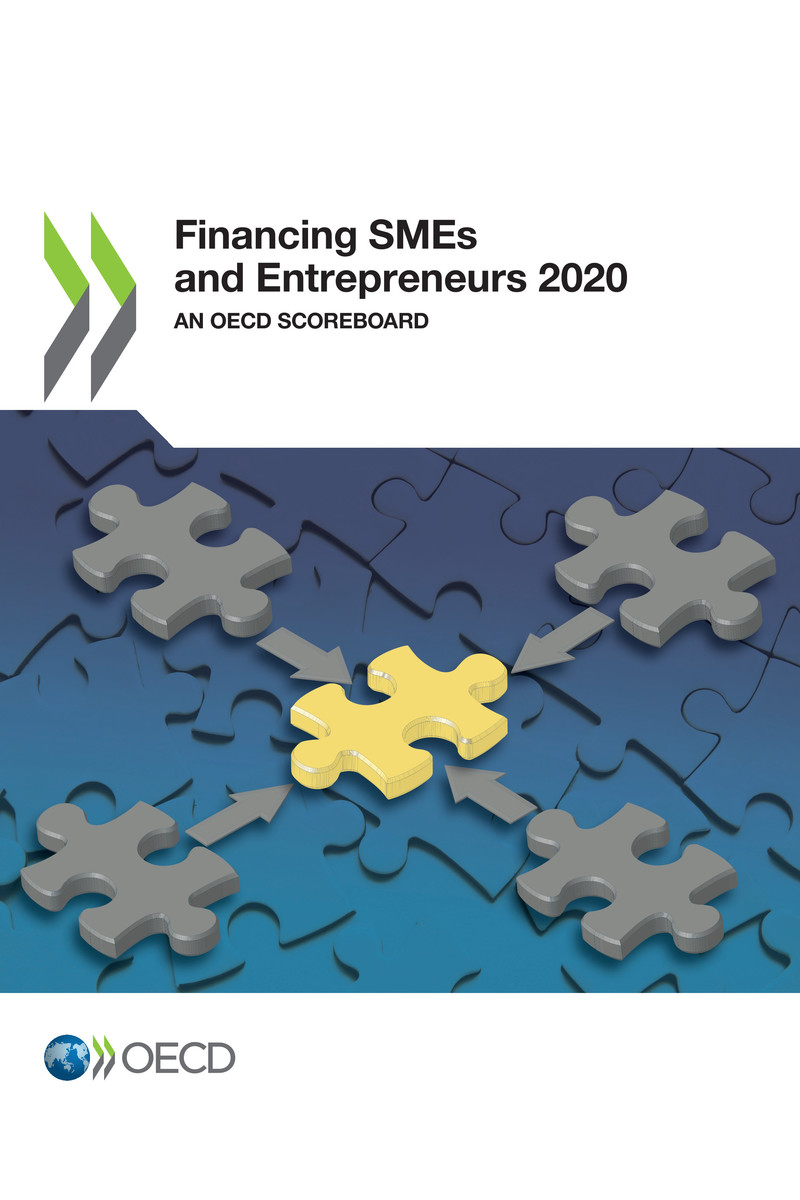
OECD (2020), Financing SMEs and Entrepreneurs 2020: An OECD Scoreboard , OECD Publishing, Paris, https://doi.org/10.1787/061fe03d-en .
In todays global economy, SMEs and entrepreneurs are at the heart of the search for inclusive growth. Ensuring small firms have access to finance in the appropriate forms and volumes is a prerequisite for their development and growth. It also becomes critical for their survival in times of crisis, such as the one the world is currently facing in the context of the COVID-19 pandemic, which is having immediate and profound effects on SMEs.
Small businesses and the self-employed are extremely vulnerable to the disruptions caused by the public health crisis and related containment measures, including through disruptions to local markets, business networks, and global and local supply chains. In the short term, loss of revenues and liquidity shortages risk putting vast numbers of SMEs out of business. SMEs are also likely to be impacted strongly by a longer-term economic and financial downturn after the immediate public health crisis has passed. These factors will affect a number of key SME finance indicators going forward.
Financing SMEs and Entrepreneurs: An OECD Scoreboard was developed as a response to the 2008 financial crisis, which brought to the fore the need for timely data to underpin policymaking. In the years since the last global crisis, SME access to finance has improved: Interest rates have reached historically low levels, bank lending has picked up again, and credit conditions for SMEs have eased considerably.
The 2020 edition of the Scoreboard shows that SMEs are opting for alternative finance instruments like never before, while growth in straight debt volumes has been sluggish. This step towards financial diversification is in line with the G20/OECD High Level Principles on SME Financing. Online alternative finance activities have shown remarkable growth rates in virtually all participating Scoreboard countries. If these trends continue, SMEs can become more resilient and less vulnerable to changes in credit market conditions. However, these developments do not come without risks and challenges for policymakers and regulators around the globe, who need to ensure adequate levels of investor protection and promote a level playing field between different financing instruments.
The Scoreboard also documents policy developments since the financial crisis. These experiences may hold important lessons for policy makers today, as they put in place urgent measures to mitigate the severe liquidity shortages brought on by the COVID-19 pandemic and begin to address the medium-term impacts of a global recession.
This is no time for complacency. The emerging economic effects of the COVID-19 global pandemic are changing the outlook for global growth, affecting the operations of SMEs worldwide, as well as their ability to access finance for cash flow needs and longer-term investments. In addition, weak trade and investment flows and the reorganisation of supply chains could negatively impact the availability of credit and other forms of finance for SMEs in the years to come.
In this complex environment, the OECD will continue to monitor closely the trends in SME and entrepreneurship finance. This report will continue to evolve and expand, with coverage of additional countries in our analysis and the collection of more granular data on specific segments of the SME population. In this way, we can continue to support governments in ensuring that their policies keep up with fast-moving developments in SME finance.

Angel Gurra OECD Secretary-General
Financing SMEs and Entrepreneurs 2020: An OECD Scoreboard provides a comprehensive framework for policy makers and other stakeholders to monitor access to finance by SMEs and entrepreneurs. This report also constitutes a valuable tool to support the design and evaluation of policy measures, and to monitor the implications of financial reforms on access to finance and financing conditions for SMEs more generally. The 2020 report provides information about SMEs and entrepreneurs access to finance over the 2007-18 period. Based on data collected for the country profiles and information from demand-side surveys, it includes indicators on debt, equity and asset-based finance, as well as on financing framework conditions, complemented by information on recent public and private initiatives to support SME access to finance.
The 2020 report is the eight edition of this annual report. It presents data for 48 countries: Australia, Austria, Belarus, Belgium, Brazil, Canada, Chile, the Peoples Republic of China, Colombia, the Czech Republic, Denmark, Estonia, Finland, France, Georgia, Greece, Hungary, Indonesia, Ireland, Israel, Italy, Japan, Kazakhstan, Korea, Latvia, Lithuania, Luxembourg, Malaysia, Mexico, the Netherlands, New Zealand, Norway, Peru, Poland, Portugal, the Russian Federation, Serbia, the Slovak Republic, Slovenia, South Africa, Spain, Sweden, Switzerland, Thailand, Turkey, Ukraine, the United Kingdom and the United States.
Chapter 1 of this publication captures recent trends in SME and entrepreneurship finance, drawing on data received from experts from participating countries, as well as from external sources. It also provides an overview of major policy developments across Scoreboard countries. Chapter 2 puts the spotlight on a thematic issue of particular interest. This edition focuses on the evolution of SME financing policies since the financial crisis in 2008 and documents the shift from immediate crisis response measures to addressing more structural issues and putting in place the appropriate regulatory environment for Fintech. Chapter 3 contains profiles of SME and entrepreneurship developments, as well as relevant policies, for all 48 participating countries. The print edition of this publication includes a snapshot view with key facts and figures, while the more detailed, complete profiles, can be accessed online.
Font size:
Interval:
Bookmark:
Similar books «Financing SMEs and Entrepreneurs 2020»
Look at similar books to Financing SMEs and Entrepreneurs 2020. We have selected literature similar in name and meaning in the hope of providing readers with more options to find new, interesting, not yet read works.
Discussion, reviews of the book Financing SMEs and Entrepreneurs 2020 and just readers' own opinions. Leave your comments, write what you think about the work, its meaning or the main characters. Specify what exactly you liked and what you didn't like, and why you think so.

